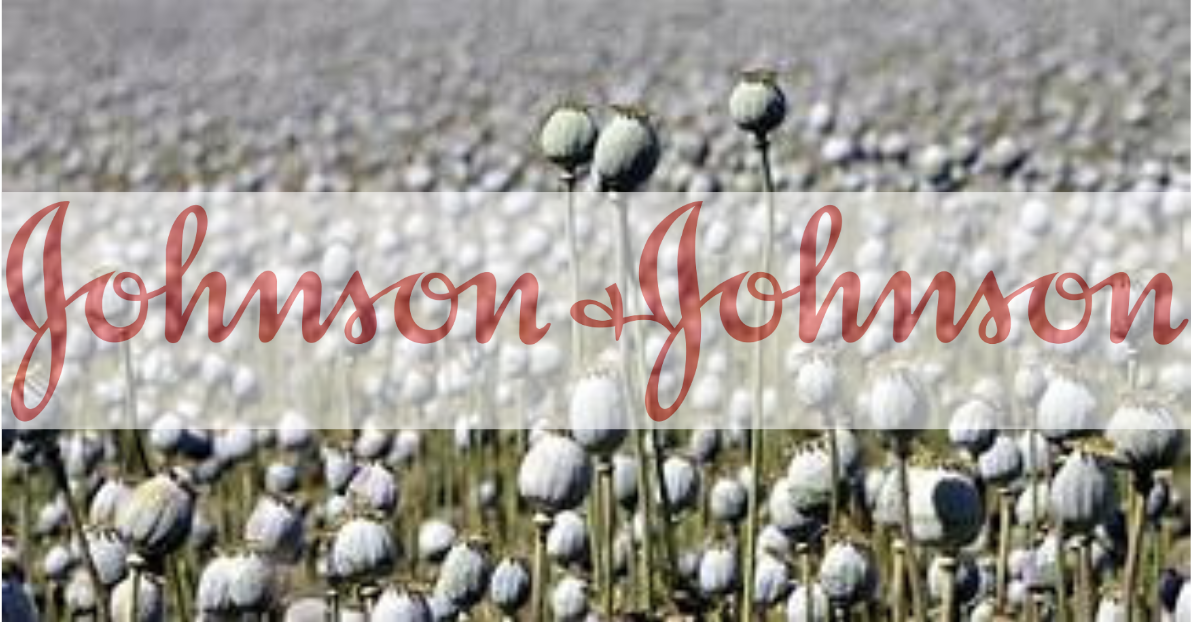Johnson & Johnson: A Household Name To A Public Downfall
In 2017 Oklahoma Attorney General Mike Hunter accused Johnson & Johnson and its subsidiaries of creating a public nuisance for its alleged role in the opioid crisis, costing the state billions of dollars and destroying thousands of lives.
Oklahoma also targeted drugmakers Purdue Pharma, the maker of OxyContin, and Teva Pharmaceuticals alongside Johnson & Johnson in its legal action. However, Purdue and Teva agreed to settle ahead of the trial for $270 million and $85 million respectively leaving Johnson and Johnson to fend for itself it the legal action.
The trial is playing out in the courtroom of Cleveland County District Judge Thad Balkman. It is the first of its kind in the nation, and legal scholars say it could set a major precedent for other states. Shaping up to be a high-water mark for some type of legal respite to help correct America’s course away from further human loss and societal degradation from the products and practices of opioid drugmakers.
The state has said that more than 6,100 Oklahomans died as a result of a prescription drug overdose from 2000 to 2017. It has proposed a $17.5 billion abatement plan over 30 years to get the state out of its opioid epidemic.
Early allegations presented in the trial mirror those of other high-profile opioid cases: that Johnson and Johnson oversold its own opioid products, Nucynta and Duragesic, by targeting high-volume prescribers, paying key opinion leaders, funding pain patient advocacy groups, and generally promoting the idea that opioids were safe and effective for chronic pain.
The trial took a surprising turn jumping right out of the pages of Philip K Dick’s novel A Scanner Darkly when discovery documents suggested Johnson and Johnson played the dominant role to supply, expand, and reap record profits from the American opioid epidemic.
The company’s role in the opioid crisis may be worse than Purdue’s. Oklahoma has alleged that two Johnson & Johnson subsidiaries, Tasmanian Alkaloids and Noramco, “created, grew, imported and supplied to J&J and its other co-conspirators, including Purdue, the narcotic raw materials necessary to manufacture the opioid pain medications thrust upon the unsuspecting public since the 1990s.”
Motherjones detailed the bombshell documents in a report stating:
“Exhibits shown at the Oklahoma trial suggest that Purdue’s growth relied largely on Johnson and Johnson’s thebaine supply. A 1998 letter from an executive from Noramco…to Purdue Frederick Laboratories (later Purdue Pharma) read, “Noramco will work with PF Laboratories to secure its entire, worldwide requirements. This is not a minor point. As we have discussed, access to raw materials is going to be critical to obtaining security of supply.” It goes on, “gaining access to raw materials on a worldwide basis…simply cannot be provided by any other company.”
During the trial, Dr. Andrew Kolodny, the co-director of the Opioid Policy Research Collaborative at Brandeis University stated, “Until I had an opportunity to review discovery documents,” Kolodny testified, “I really was not aware of how bad Johnson & Johnson was.”
Kolodny said Johnson & Johnson differentiated itself from other drug makers because it played a part in all three types of opioids: natural, semi-synthetic and synthetic.
It appears that corporate giant Johnson and Johnson may have been acting as the Pablo Escobar kingpin to the lesser Purdue Pharma street level underling dealers. Through recent legal cases and mainstream reporting, the public has been primed to believe that Purdue Pharma may be responsible for the extended and devastating American opioid epidemic.
Hunter stated, the public “deserves to know the face and name of the source, supplier and kingpin responsible for flooding and infecting this country with an unprecedented surplus of deadly drugs — J&J, a ‘family company.’” He said his case will demonstrate that Johnson & Johnson “acted as the kingpin behind this Public Health Emergency, profiting at every stage.”
Johnson and Johnson is also facing a tsunami of legal cases from plaintiffs blaming rare asbestos-related cancers on its talc products. In early June, the company was ordered to pay $4.8M in damages to a plaintiff with mesothelioma. Johnson and Johnson faces more than 13,000 talc-related lawsuits. In May, the company was ordered to pay $300 million in punitive damages to a woman in New York who blamed her cancer on the company’s talc products.
The public is being exposed to continual truths telling an age-old story of corporate corruption of the highest order. In the past, before multinational domination and rapid interconnectedness, natural, legal and public barriers bound corporations limiting the extend of human damage caused by industry collusion and criminal underhandedness. However, at present with each internal email revealed and through each public testimony under oath, dangerous corporate products wielded with impunity by monopolies, are negatively affecting entire countries and racing to injure unknowing customers on the global stage. From pesticides to herbicides, opioids to talc, corporations have put profits over people’s health continuously. When will vaccines be included in the lineup and questioned under the same rightful scrutiny as other for-profit products?
The impending choices which will be made by greater humanity is still unclear. The facts being exposed in multiple legal cases begs for multifaceted, conscious solutions to be implemented rapidly. A corporate-directed race to the bottom of our collective health and societal cohesion has been a cost we have, and still are, paying to feed record profits to underserving corporations.
With the state of Oklahoma now resting, Johnson & Johnson will now resume its defense. The drugmaker is expected to take another three weeks to present its defense, and closing arguments would follow.
Original Source: http://www.jeffereyjaxen.com/blog/johnson-johnson-a-household-name-to-a-public-downfall









